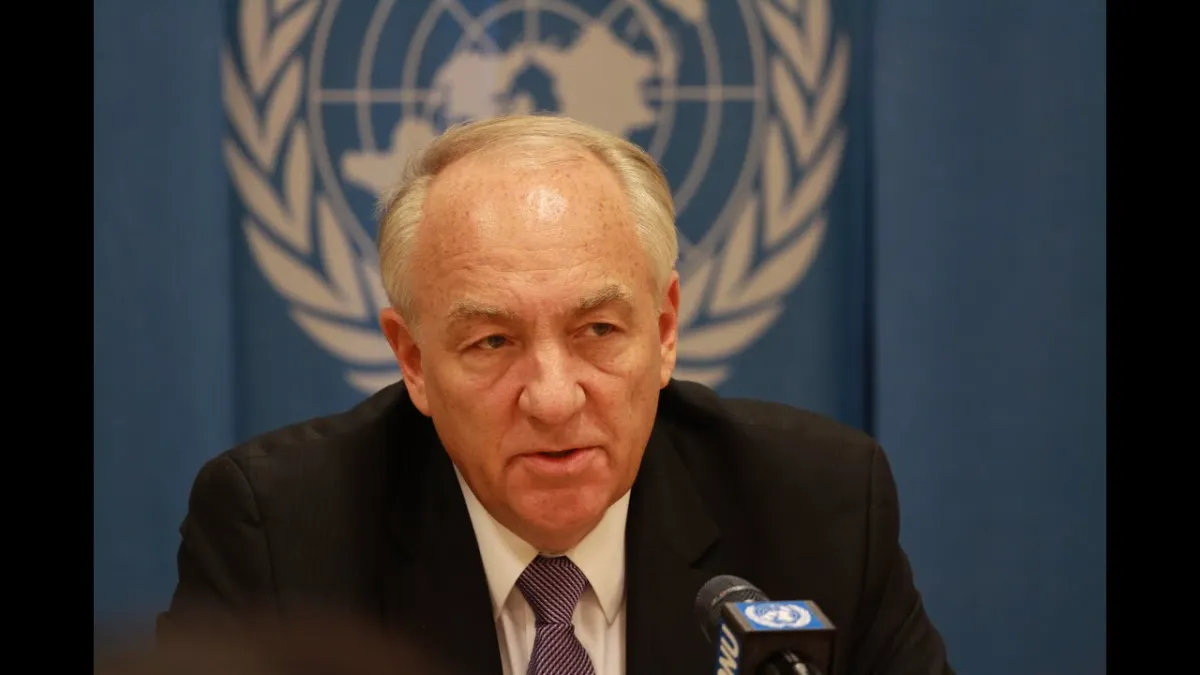
Stephen Rapp, former US ambassador to international criminal justice, has called on the French judiciary to maintain the arrest warrant against regime head Bashar al-Assad for his alleged complicity in crimes against humanity. The charges stem from chemical weapons attacks in Syria in 2013, which resulted in hundreds of deaths. In an article published on the French website Mediapart, Rapp argued that immunity should not equate to impunity. The Paris Court of Appeal is set to announce its decision on the appeal in this case next month on June 26.
Rapp highlighted that while international law typically grants immunity to state officials for actions conducted in their official capacity, France does not recognize Assad as Syria’s legitimate representative. In 2012, France acknowledged the National Coalition of Syrian Revolution and Opposition Forces as the sole representative of the Syrian people.
The French National Anti-Terrorism Prosecutor’s Office (PNAT) has requested that the arrest warrant, issued in November 2023, be annulled on the grounds of absolute personal immunity for sitting heads of state. On November 14, 2023, French investigating judges issued arrest warrants for Assad and three other high-ranking Syrian security officials, including the president’s brother, Maher al-Assad, head of the 4th Division, an elite army unit, and two generals, Ghassan Abbas and Bassam al-Hassan. This marked a judicial first: never before has a national court—not an international one like the International Criminal Court (ICC) in The Hague—issued an arrest warrant for a sitting state leader.
Syrian and international human rights organizations welcomed Rapp’s statement, condemning the French judiciary’s challenge to the arrest warrant’s validity. However, they deemed it insufficient to achieve justice for the Syrian people and resolve the protracted crisis, now spanning over 13 years.
On May 15, the Paris Court of Appeal considered the validity of the arrest warrant concerning Assad behind closed doors at the request of the PNAT, which has jurisdiction over crimes against humanity. The PNAT expressed its belief that “the issuance of this warrant raises a fundamental legal question about the immunity ratione [concerning acts performed in an official capacity] enjoyed by heads of state.” While Bashar’s warrant is under review, the three other arrest warrants are not subject to the motion.
For the plaintiffs, this request for annulment is as much a matter of law as politics. There is strong apprehension, particularly within the French foreign affairs ministry, that it could set a precedent and open the door to foreign courts issuing arrest warrants for the French President. Opponents of the annulment believe that the PNAT’s position is an “aberration” in that it amounts to protecting a defendant against the victims’ interests.
“This request hinders the extraordinary efforts of victims and survivors seeking justice and reparation,” said 65 NGOs and organizations, several of which are plaintiffs in the case, in a joint statement. “It is now time to call into question the personal immunity of the current head of state with regard to international crimes,” and France must “send a firm message to the world: The use of chemical weapons is prohibited, and all perpetrators of these crimes will be brought to justice,” the statement said.
Mazen Darwish, founder and managing director of the Syrian Center for Media and Freedom of Expression (SCM), one of the four NGOs admitted as plaintiffs, believed that “the office of president must not serve as a shield.” “This is essential to preserve security and peace in the world,” he added. The decision by the Paris Court of Appeal will be closely watched as it could set a precedent for the international community’s approach to holding state leaders accountable for crimes against humanity.









